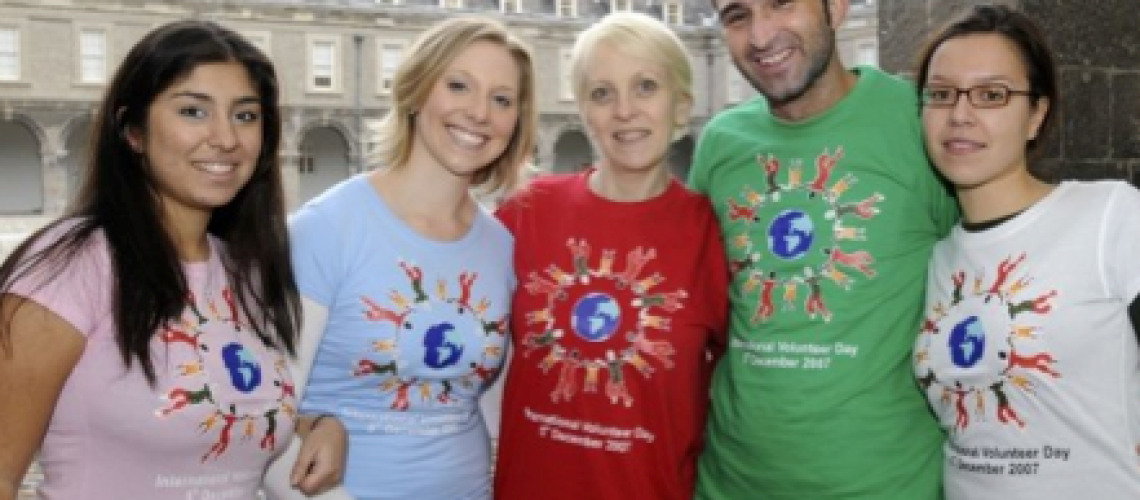 Do you need to select at all?
Do you need to select at all?
Screening and selection are not a concern for every organisation that involves volunteers. Some, especially those whose main reason for existence is to involve the local community or to encourage participation by those with a particular interest or concern, welcome anyone who wants to join in. There will be instances, however, where an organisation will need to make an informed decision about who it will and will not accept as a volunteer. Examples include:
- if volunteers will be working with vulnerable people, such as children
- if volunteers are going to be doing a lot of unsupervised work
- if volunteers need any particular skills, such as driving or command of a language
- if volunteers will be handling money, or will be put in similar positions of trust.
Some basics
- There is no screening device in the world that comes with a guarantee.
- Having checks in place, and advertising this, is in itself a good screening technique, but be careful about putting off potentially good volunteers.
- Be clear and fair throughout the process; tell people what checks you are planning to carry out and get their consent beforehand.
- Don\’t acquire any more information than you actually need to know about the volunteer.
- Be consistent; check every volunteer in the same way, even if you already know him/her.
- Don\’t be any more strict when checking volunteers than you would be if you were checking paid staff.
- Store all confidential information securely; restrict access to those who really need it.
- Never rely on \’gut instinct\’ alone; a combination of screening tools (see below) is always preferable than relying on only one, and only use methods which are appropriate to the nature of the voluntary work.
Role descriptions and organisational information
This is the first stage in any screening and selection procedure. By providing accurate information about your organisation and the tasks to be done, you enable potential volunteers to undertake a process of self-selection to see if they would be interested in, and suitable for, working with you.
Application forms and CVs
These allow the organisation to gain administrative details (name, address etc) as well as asking questions about people\’s experience and their reasons for wanting to volunteer. Application forms, unlike CVs, ensure that everyone is treated the same way and that the same information is gathered from all. Forms can be completed before, during or after an interview. Remember that written forms can be off-putting for people with literacy problems or for those with poor English.
Interviews
Interviews, which can be individual or group sessions, should always be regarded as a two-way process, in which the organisation and the volunteer can find out about each other\’s suitability. Make interviews as informal as possible (consider calling them \’chats\’); putting people at ease will ensure you get the best out of them.
Checking skills and qualifications
It might be appropriate, at times, to ask people to perform a test, in order to verify a certain skill. Examples include: driving a van, operating a computer, typing, and so on. At times, you may also need to confirm that someone holds certain academic or professional qualifications, or that drivers hold licences, or that their motor insurance covers their volunteering activities if they will be using their own car. You could ask applicants to bring proof of qualifications with them to an interview.
References
Usually, an organisation requests two character references from non-relatives. References can be given over the telephone or in writing. A simple reference form or telephone reference checklist ensures consistency, is easy to complete, and also guarantees that difficult issues are not avoided deliberately.
Garda Vetting
Garda Vetting is a procedure that investigates individuals if their work involves substantial access to children and other vulnerable persons. The procedure provides information on any prosecutions or convictions a person may have had. There are strict procedures around how the process operates and the Fingal Volunteer Centre can advise on this.
Please remember that these checks are by no means foolproof (for example, a volunteer may have committed offences abroad or may have offended but not have been convicted). Also remember that evidence of a criminal conviction does not necessarily mean that someone cannot volunteer; it depends entirely on the nature of the voluntary work.
Health checks
In certain instances, you may need to ask potential volunteers for medical evidence or ask them to go for a health check. Examples might include:
- if they will be lifting clients
- if they will be travelling abroad and need immunisations
- if they have suffered from a mental or physical illness; are they now ready to volunteer?
Trial period
Some organisations use the processes of induction, training and probation as forms of selection. For example, some organisations require people to undergo a training course before taking them on as volunteers. Others have an observation period where the volunteer is closely supervised and supported while they undertake their assignment.
How to say no
Inevitably, screening means you sometimes have to say \’no\’ to potential volunteers. This can be very difficult. Always make sure you do it, however, and don\’t simply hope that people will go away. You can refuse people by letter, on the telephone or face-to-face. Whichever method you choose, stress that you are following official policy, explain why they have been unsuccessful, offer suggestions on building experience/skills and if appropriate, offer alternatives.
Please remember that just because a volunteer might not be suitable for your organisation, it does not mean that they cannot volunteer at all. Please suggest they contact their local Volunteer Centre where they will ensure they find something that suits them.





